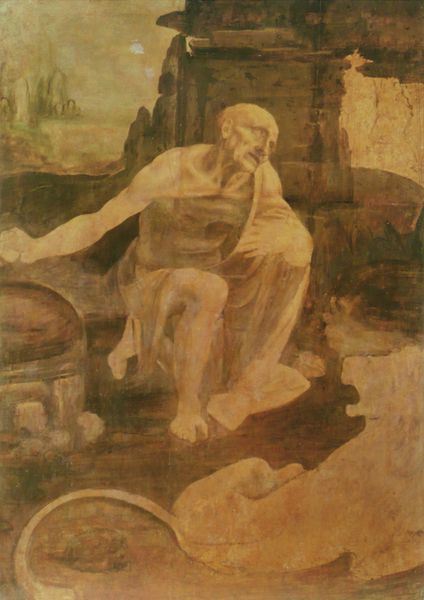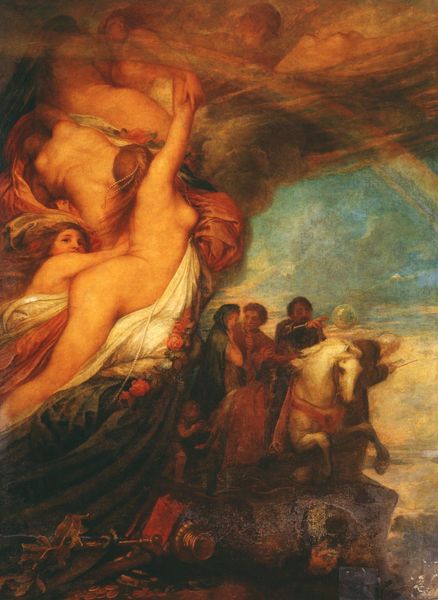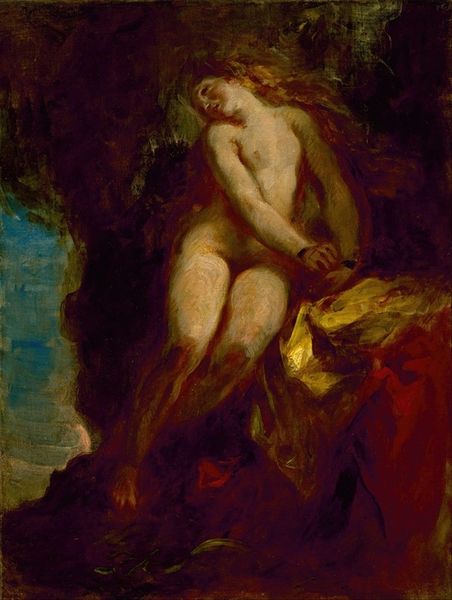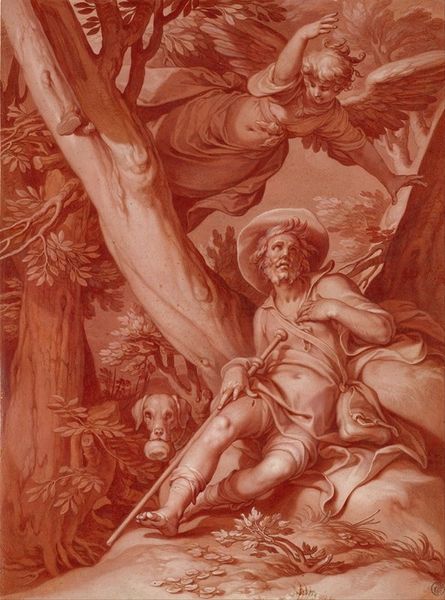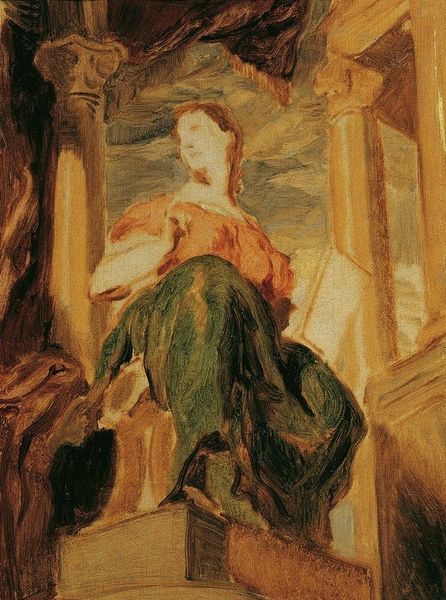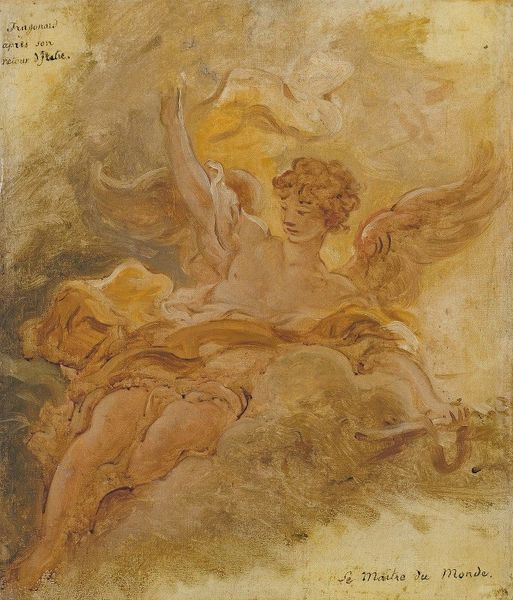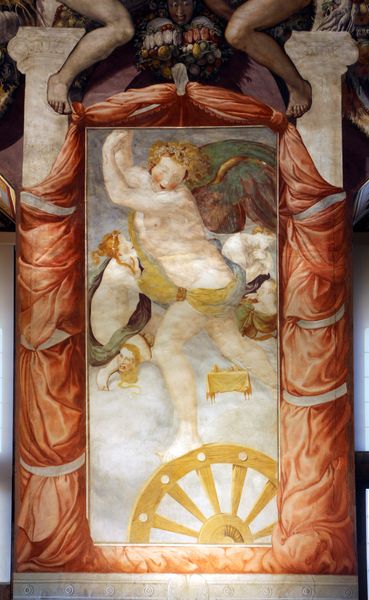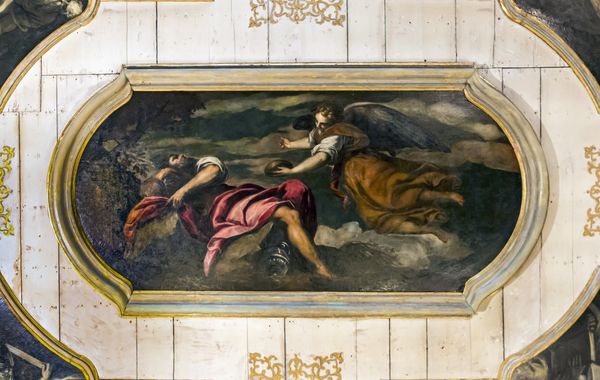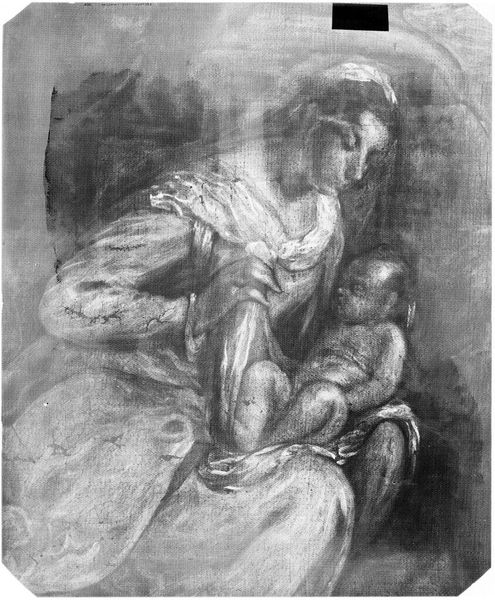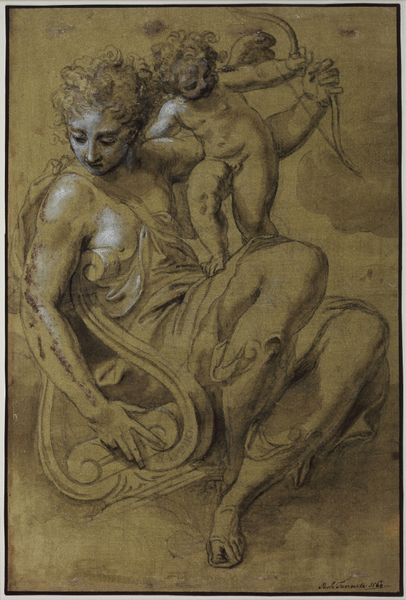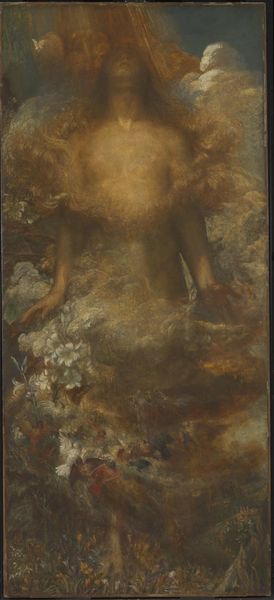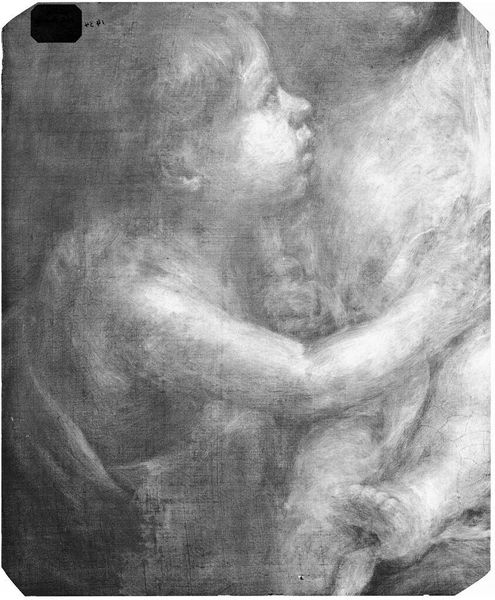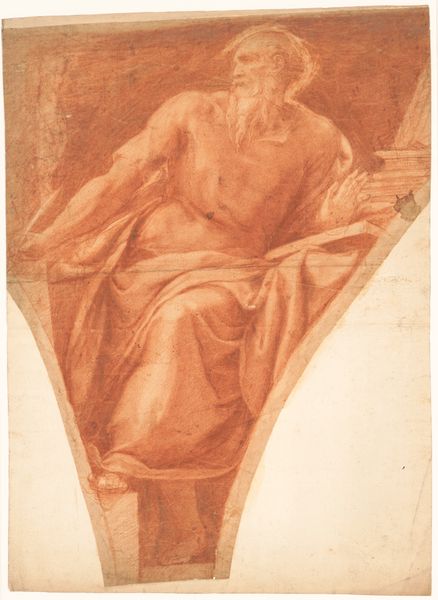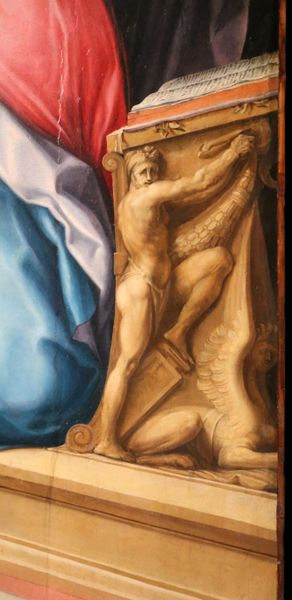
drawing, oil-paint
#
drawing
#
oil-paint
#
charcoal drawing
#
figuration
#
charcoal art
#
oil painting
#
roman-mythology
#
romanticism
#
mythology
#
nude
#
watercolor
Copyright: Public domain
Curator: Welcome. Let’s consider this expressive painting, "The Muse of Orpheus" by Eugène Delacroix, created in 1847. It's an oil on canvas, but with a sketched quality reminiscent of drawing. Editor: Ah, yes. Immediately, I sense a brooding kind of romance, a kind of intimate melancholic scene, but so intense, somehow… It is an earthy figure against umber. And I like the unexpected geometry from the golden diamond frame surrounding the organic subject within. Curator: Interesting. Delacroix was of course a leading figure in the Romantic movement, often exploring literary and historical themes through the lens of heightened emotion. Orpheus, as you know, is the legendary musician of Greek myth. His music was said to charm all living things. Editor: Right. And there’s that laurel wreath; the hint that our central character embodies poetry and music. Even with this preliminary rendering, his grief, maybe right after losing Eurydice…is palpable. The artist’s sensitivity is on full display! The chiaroscuro enhances a somber, concentrated mood. Curator: Exactly! Delacroix depicts the emotional consequences, the grief and perhaps artistic paralysis after immense personal tragedy, that I read in the light and shadow contrast. Notice, too, the bold use of impasto to amplify the texture and heighten that drama. This almost functions as an existential statement on the cost of art, the vulnerability of the artist. Editor: Precisely. Delacroix gets at something universal about grief but the artistic temperament specifically: the beauty and sorrow tangled together like Orpheus’ lyre strings! Well, I am now pondering just how many layers exist within “The Muse of Orpheus” … Curator: Indeed, one could talk at length about that entanglement. Delacroix presents mythology as both an aesthetic device but as an allegory for our present conditions and that human connection. Editor: Beautifully put. That is our Romantic artist's statement here, I believe.
Comments
No comments
Be the first to comment and join the conversation on the ultimate creative platform.
